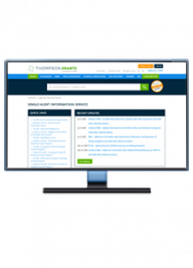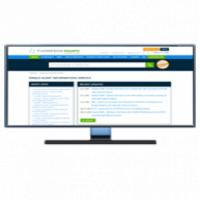Sneak Preview: Plans Made To Share Food Program Eligibility Data

(The following was excerpted from a recent Grants Compliance Expert article.) To help state and local nutrition assistance agencies ensure food program participants are eligible for COVID-19 pandemic relief, the U.S. Department of Agriculture’s (USDA) Food and Nutrition Service (FNS) is looking to develop processes to allow these agencies to easily share participant eligibility data, in response to recommendations in a recent Government Accountability Office (GAO) report.
The Coronavirus Aid, Relief, and Economic Security (CARES) Act (Pub. L. 116-136) includes a provision for GAO to report regularly on the federal response to the pandemic. GAO recently issued its ninth recurring oversight report in response to this provision, with this one focused on several key programs including nutrition assistance programs.
FNS administers multiple federal nutrition assistance programs, including the Pandemic Electronic Benefits Transfer (Pandemic EBT) program — which provides food assistance for children attending schools closed due to COVID-19 — and the Supplemental Nutrition Assistance Program (SNAP). Pandemic relief packages provided increased funding for FNS’ nutrition assistance programs and extended flexibilities in how states administer some programs during the COVID-19 pandemic. Some $42 billion had been expended under the Pandemic EBT program as of November 2021.
GAO found that even though FNS has made this focused funding available, state SNAP agencies have encountered challenges obtaining reliable and comprehensive information regarding students’ eligibility to receive Pandemic EBT benefits, but FNS has not provided sufficient assistance to help states overcome these challenges. State SNAP agencies currently issue Pandemic EBT benefits based on information obtained from state educational agencies (SEAs) on students’ eligibility to receive free or reduced-price meals through the National School Lunch Program (NSLP) and on schools’ operating status. However, selected state SNAP agency officials told GAO that obtaining data through this process can be difficult.
For example, some states have laws prohibiting data sharing between SEAs and state SNAP agencies, leading to delays in issuing Pandemic EBT benefits to students. In addition, state SNAP agencies have struggled to obtain reliable and comprehensive NSLP eligibility data and school operating status from SEAs because, prior to the pandemic, SEAs did not track whether students were learning in-person, remotely or through a hybrid model. SNAP agencies need this information to determine students’ eligibility and benefit amounts for Pandemic EBT accuracy. Overall, GAO found that SEAs’ capabilities in compiling students’ NSLP data and school operating status varied by schools, districts and states.
(The full version of this story has now been made available to all for a limited time here.)
Join us for our following Thompson Grants events:
Thompson Grants Workshop: Federal Grant Reporting - 2022 Update| Feb. 23, 2022 | Virtual Event
Federal Grants Forum For State & Local Governments | March 2-3, 2022 | Virtual Event
Nonprofit Legal, Finance, and Grants Conference | March 16-18, 2022 | Washington, D.C.



